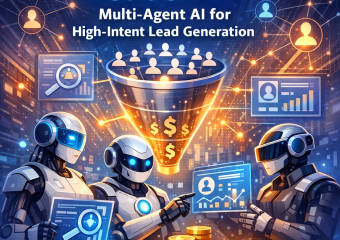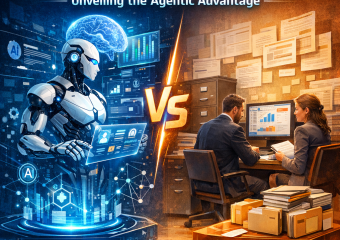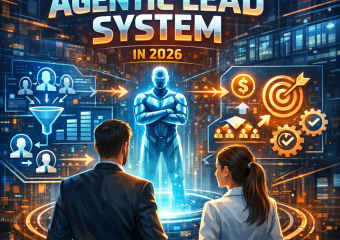AI Chat Agents vs. Human SDRs: Uncover the Best Choice for Lead Qualification!
AI Chat Agents vs. Human SDRs: Evaluating Performance in Lead Qualification
In the fast-paced world of sales, lead qualification stands as a critical first step towards achieving revenue goals. This process allows businesses to sift through potential customers to find those most likely to convert, saving time and resources in the long run. Traditionally, this task has been the domain of human Sales Development Representatives (SDRs). However, with advancements in artificial intelligence, AI chat agents are increasingly becoming a viable alternative. The question then arises: which is more effective in qualifying leads, AI chat agents or human SDRs?
Understanding AI Chat Agents
AI chat agents use machine learning algorithms and natural language processing to interact with potential leads. These systems can analyze large amounts of data rapidly, providing responses based on patterns and behaviors observed over time. As technology evolves, these agents are programmed to handle increasingly complex conversations, theoretically improving their efficiency in qualifying leads.
The Role of Human SDRs
Human SDRs bring a personal touch that AI systems have yet to fully replicate. They rely on emotional intelligence, intuition, and the ability to adapt quickly to the nuances of human conversation. Human SDRs can understand subtleties like tone and context, which can be pivotal in gauging a potential client’s interest and readiness to buy.
A Comparison of Efficiency and Effectiveness
Speed and Availability: AI chat agents are available 24/7, meaning they can engage leads at any time of the day without the limitations of human fatigue or scheduling conflicts. This around-the-clock availability can potentially increase the number of leads engaged and subsequently qualified. However, the speed at which AI chat agents process and respond to queries can be both a blessing and a curse. While they can handle a high volume of interactions simultaneously, the lack of deep understanding can sometimes lead to irrelevant or generic responses.
Cost Implications: From a financial perspective, AI chat agents can be more cost-effective in the long run. Once set up, the operational costs associated with these agents are significantly lower than the salaries and benefits required to sustain a human workforce. Nevertheless, the initial investment in a robust AI system and its ongoing maintenance can be substantial.
Customization and Learning: One of the strongest arguments for AI chat agents is their ability to learn from interactions and adapt over time. These systems can be programmed to recognize successful interaction patterns and modify their responses accordingly. On the other hand, human SDRs can personalize their approach extensively based on immediate feedback during a conversation, potentially leading to a higher quality of lead qualification in complex scenarios.
Emotional Intelligence: This is perhaps the most significant advantage human SDRs have over AI. The ability to perceive emotional cues and react empathetically can be crucial in building relationships with potential clients. Trust and rapport, which are often developed through personal connections, can significantly influence a lead’s decision to engage further with a company.
The Verdict: Complement Rather than Compete
Instead of declaring a clear winner in the matchup between AI chat agents and human SDRs, it may be more beneficial to view them as complementary to each other. Combining the efficiency and scalability of AI with the empathetic and adaptive approach of human SDRs can create a hybrid model that maximizes lead qualification success. AI chat agents can handle the initial interaction and basic qualification, filtering out less promising leads. Human SDRs can then take over the more promising or complex cases, utilizing their interpersonal skills to close the loop.
Conclusion
In conclusion, the debate between AI chat agents and human SDRs in lead qualification does not necessarily need a winner. Each has strengths that can significantly enhance the lead qualification process. Businesses looking to optimize their sales funnel should consider a strategic integration of both technologies, ensuring that they harness the best of both worlds to achieve superior results. As AI technology continues to advance and integrate more deeply with human-like learning capabilities, the future of sales and lead management looks not only more efficient but also more interconnected.






